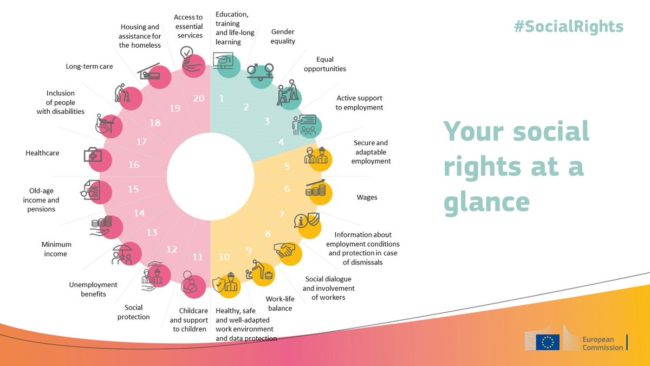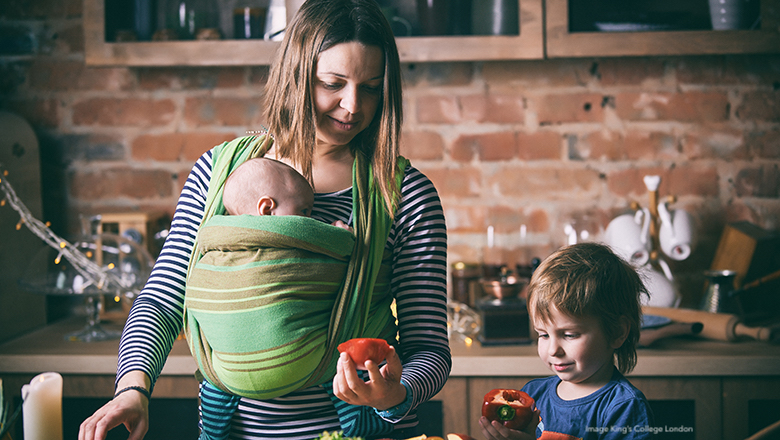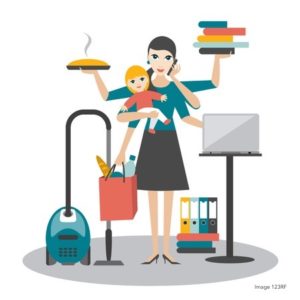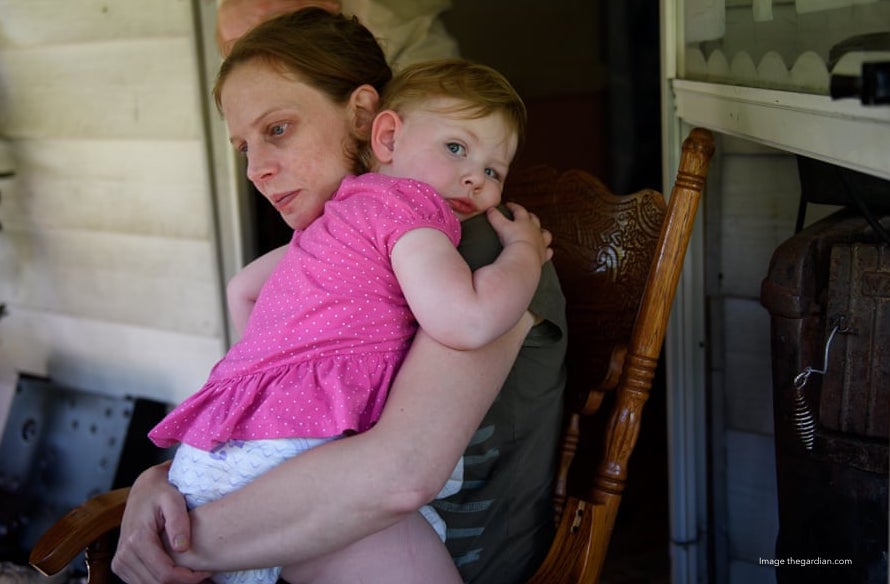The European Pillar of Social Rights Action Plan: steady progress for unpaid care work
14.04.21
The pandemic has shed light on the most valuable, yet invisible and undervalued work: care work. Without it, our societies would grind to a halt. It is carers all over the world who have been at the forefront of the health crisis. Most of them are women, either taking risks caring for the sick and elderly or juggling work and caring responsibilities in the home (often at the expense of their remunerated work). It is they who have been hit hardest by the social and economic fallout of Covid-19. In this context, the Action Plan could not be timelier and was highly anticipated.

The EC proposal addresses the 3 main areas of the pillar: Skills and equality, more and better jobs and social protection and inclusion. According to the latest Eurobarometer [1], for the majority of the respondents the fight against poverty and social inequalities are at the top of the priorities. We at Make Mothers Matter believe that in order to achieve social inclusion and social justice the EU needs to develop a comprehensive implementation of all 20 pillars.
Since the proclamation of the Social Pillar in 2017, MMM has been calling for strong commitments to protect mothers and families. In particular, we have been advocating for the reduction, recognition and redistribution of unpaid care work, persistently highlighting that it is at the root of the gender gaps (in employment, pay, pension, etc).
Unpaid Care Work
Make Mothers Matter welcomes the adoption of the Action Plan on the European Pillar of Social Rights. We are delighted to report that strong attention has been given to the persistent gender employment and pay gap and one of its underlying causes: unpaid care work. Caring responsibilities, which largely fall on women, are recognised as a barrier to enter, and stay in the labour force and as a cause of the pay and pension gaps.
In our answer to the public consultation on the European Pillar of Social Rights, we reiterated the importance of reducing, recognising and redistributing unpaid care work to close gender gaps and we made suggestions as to how this could be achieved.

This entails measures such as providing pension rights for care-related career breaks work-life balance measures allowing parents to reconcile work and private life and the implementation of policies that directly encourage fathers to take leave.
Therefore, we applaud the EC plan to map best practices in providing pension rights for care-related career breaks in pension schemes and promote the exchange of practices among Member States, social partners, and pension stakeholders.
We are also encouraged to see that the EC will promote the equal sharing of care and work responsibilities in line with the Work-Life Balance Directive. The latter provides the right to request flexible working conditions for parents of children until the age of 12 and people with caring responsibilities. MMM would like to see these rights extended to parents of children up to 18 years old. In addition, we regret that there are no plans to revise the maternity leave Directive and extend the period of leave to at least 20 paid weeks, which MMM has been advocating or.
Lastly, we are grateful for the EC’s acknowledgement of the importance of the level and design of parental benefits, and the possibility to share the leave equally between men and women in reducing the gender employment and pay gaps. Therefore, the set up mechanisms that allow evaluating and monitoring the transposition of the WLB Directive are welcomed.
Lifelong Learning
The second target of the Action Plan, which aims to engage at least 60% of adults in training every year, puts an emphasis on building strong foundations through investment in initial education and training for youth. However, as undisputable as the importance of this investment may be, time is the biggest barrier preventing men and women from engaging in lifelong learning, according to EIGE.
On average, 40 % of women in the EU who faced obstacles to participating in education and training activities could not take part due to family responsibilities. As reported by EIGE, “women consistently report that they cannot participate in lifelong learning because of their family responsibilities.”
Therefore, we regret that potential synergies and conflicts between better work—life balance and higher participation in lifelong learning were not taken into consideration. Allowing for family responsibilities parents have to shoulder, they should be able to benefit from flexible paths of training, upskilling and re-skilling. Access to lifelong learning should be made easier, especially for parents, as this would facilitate their return to the labour market after a career-break due to care responsibilities. Furthermore, emphasis should be placed on quality employment.
 In addition, parenthood is a learning experience that provides parents with soft skills that contribute to social inclusion, personal development, empowerment, and employability. Recognizing and validating this new set of skills acquired through non-formal and informal learning would require a lifecycle approach to education which is not put forward in this Action Plan.
In addition, parenthood is a learning experience that provides parents with soft skills that contribute to social inclusion, personal development, empowerment, and employability. Recognizing and validating this new set of skills acquired through non-formal and informal learning would require a lifecycle approach to education which is not put forward in this Action Plan.
Health care
The right to health is built on the fundamental elements of availability, accessibility, acceptability and of high quality[2]. However, access to maternal health care is still a challenge for many women. Rural populations, the elderly, the less mobile and the vulnerable, including pregnant women, face difficulties in accessing health care in at least half of all Member States. As such, we welcome the EC plan proposing new tools to better measure barriers and gaps in access to health care.
However, disrespectful practices at health care facilities are reported on a daily basis. This includes discriminatory practices, physical abuse (such as unnecessary episiotomy, caesarean procedures, use of force such as abdominal compression, e.g.) and abandonment (long delays in receiving care). These practices violate women’s right to respectful care, as well as their right to life, bodily integrity and freedom from discrimination and we regret to see they are not addressed in the Action Plan.
Children
We welcome the Action Plan on the Child Guarantee and the inclusion of a child poverty target, and the sub-target aiming to lift at least 5 million children out of poverty in the EU by 2030. We strongly believe that the emphasis should be placed on “at least“[3]. MS need to go beyond this number considering the already devastating impact of Covid and the future consequences for families with children.
Child poverty alleviation cannot be disassociated from support to parents and caregivers. We approve the Action Plan as strong links are made between the well-being of children and their parents. This includes work-life measures, investment in childhood education and care, poverty reduction with a target on child poverty, and the Child Guarantee. We welcome the renewed Barcelona targets to be launched in 2022 to ensure that children will all have equal access to early childhood education and care.
As partners to the Alliance for Investing in Children[4], we welcome the revision of the Social Scoreboard to monitor the tackling of child poverty more efficiently and the new headline indicator for at-risk-of-poverty rate or exclusion for children (0-17).
We call for the inclusion and consultation of parents to ensure they are part of the process, as their role is key for the wellbeing of their children. Among them, single parents merit specific attention as two fifths of single parent households are at risk of poverty or social exclusion – most of them are lone mothers.
Housing and assistance for the homeless
The risk of poverty and social exclusion is particularly high among the most vulnerable groups in society. These include mothers (especially single mothers), refugee and migrant women and women with disabilities. Other intersectional risk factors such as unemployment, lack of care services for children and caring responsibilities for dependent family members, make mothers and women with caring responsibilities more vulnerable to poverty risks.

Women are more at risk of poverty and social exclusion than men (22.8 % of women compared to 20.8 % of men in 2018). COVID-19 has aggravated this situation, affecting everyone – but not equally so. Women and girls are disproportionately affected by the economic effects of global pandemics, especially those in the poorest and most marginalized communities. Women face an increased risk of homelessness and/or more problems in accessing housing. This is due to expensive private-sector rents making it difficult to access affordable housing (increasingly scarce in many cities), with discrimination and higher risk of eviction. This issue has hit organisations that help provide a roof for the most vulnerable, such as our member organisation Les 3 Pommiers, which has reported a worsening of conditions in sourcing affordable housing.
Due to the pandemic, single parent families are at higher risk than ever. As such, many countries, such as Belgium and Finland, consider that the current COVID-19 crisis is hitting single mothers and their children hard.
One of the best ways to prevent people from being dragged into poverty is to build individual and societal resilience – and strong social protection systems are the cornerstones of such resilience. In this context, adequate, accessible, and enabling Minimum Income Schemes have an essential role to play as an ultimate safety net.
Countries that combine universal and policy measures targeting single parents show lower poverty rates among single parents. MMM therefore calls on policy measures tailored specifically for single parents. These include child support (and guaranteed advances) and financial supplements to child benefits that are targeted to single parents in poverty.
Conclusion
Without someone investing time, effort and resources on daily unpaid care work activities, communities, workplaces, and whole economies would grind to a halt.[5] The everyday unremarkable unpaid work of care is the backbone of our societies and our economies. Make Mothers Matter applauds the efforts put forward by the EC as they will contribute to reduce, recognize, and redistribute this work. Together with our grassroots organisations, we will continue to push for more ambitious policies at EU and national levels but this framework is a good start for national members to trigger the necessary policy reforms.
[1] Eurobarometer: https://www.europarl.europa.eu/at-your-service/en/be-heard/eurobarometer/parlemeter-2020
[2] United Nations. (2000). CESCR General Comment No. 14: the right to the highest attainable standard of health (Art.12). Adopted at the Twenty-second Session of the Committee on Economic, Social and Cultural Rights, on 11 August 2000. Geneva: Office of the High Commissioner for Human Rights. Retrieved 15 October 2019. Available at: https://www.refworld.org/pdfid/4538838d0.pdf (Last accessed on 9 November 2020)
[3] https://ec.europa.eu/info/strategy/priorities-2019-2024/economy-works-people/jobs-growth-and-investment/european-pillar-social-rights/european-pillar-social-rights-action-plan_en
[4] http://www.alliance4investinginchildren.eu/eu-alliance-for-investing-in-children-statement-to-the-european-pillar-of-social-rights-action-plan/
[5] https://indepth.oxfam.org.uk/time-to-care/
The New EU Gender Equality Roadmap : A Call for Inclusion of Mothers
04.03.25
The European Commission’s initiative on a new Gender Equality Roadmap post-2025, marks a significant step forward in addressing gender disparities across the European Union. Make Mothers Matter (MMM
Breaking the Cycle: Gender Equality as a Path to Better Mental Health
18.03.25
The Council of the European Union has taken a decisive step in recognising the vital connection between gender equality and mental health.
Europe Must Listen to Mothers: Our landmark report heads to the European Parliament
28.08.25
On 22 September 2025, the voices of mothers will take centre stage in Brussels. For the first time, Make Mothers Matter (MMM) will present its State of Motherhood in Europe








